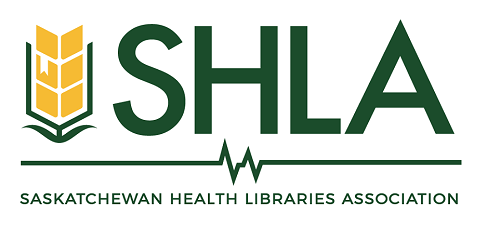Meeting Date: March 22, 2021
Presenter: Vanja Stojanovic
Article: Linton J, Ducas A. A New Tool for Collection Assessment: One Library’s Response to the Calls to Action Issued by Canada’s Truth and Reconciliation Commission. Collection Management [Internet]. 2017 [cited 2021 Mar 9];42(3–4):256–79. Available from: https://www.tandfonline.com/doi/abs/10.1080/01462679.2017.1344596
Questions:
1) What is one thing that stood out to you about this article? What did you learn?
- The University of Manitoba medical school was the first school to integrate an Indigenous library collection into their curriculum.
- Created in 2016, surprising it took until then
- It is important to partner with the Indigenous communities from the very beginning when engaging in collection development or offering resources and services
- Balancing out a collection, a bit of an awakening of thinking about health resources being beyond just health science-based,
2) Tell us a little bit about some of the Indigenous health resources that your library collects and provides.
- The SHA library in Prince Albert has put together some resources for their consumer health collection, include autobiographies of First Nations peoples.
- Small collection at St. Paul’s in Saskatoon, put together a bit of a guide in 2019, mostly consumer health than literature for SHA staff
- The SHA library website has an Indigenous guide with books, website, links, and other policies available to browse.
- The iPortal (Indigenous Studies Portal Research Tool) can also be searched for resources (available from the University of Saskatchewan library).
- UofR has many of titles mentioned in the article, sections on indigenous health in both French and English sections of the nursing lib guide
3) How can we as health librarians listen to and collaborate with Indigenous communities, Indigenous healthcare professionals, and/or organizational departments dedicated to Indigenous patients and their families to “balance” our collections?
- We need to acknowledge that books and materials aren’t the whole picture, the oral history and non-tangible material needs to be included
- Alternative formats like videos are one way to offer resources relevant to Indigenous communities.
- As librarians, we should make every effort not think about our work as an extraction and packaging of Indigenous knowledge. True collaboration with Indigenous peoples is the first step.
- The SHA Indigenous Resources guide was developed in collaboration with the SHA Indigenous and Metis department
- Need to make time for collaboration
- People and effort are often constrained and this isn’t a priority in our work overall even if it should be
- Need to think about it collaboratively, need to stay and build, not a one-time information extraction
- Programs try to collaborate, but often just trying to ‘show’ work rather than continuing to make the changes permanent to make a permanent forward motion than a one off
4) What are some ways we can integrate Indigenous health resources into our own library services on a regular basis?
- In reference interviews, we can ask users if they are interested in finding Indigenous resources as part of their search.
- We can use established search hedges when conducting literature searches; some existing hedges can be adapted to meet the specific needs of the communities served.
- The article highlights the importance of doing the work long term, creating a solid foundation and building relationships as the most effective way to integrate Indigenous health resources.
- Centering Indigenous peoples and resources relevant to them is one strategy that we can adopt immediately in all of our work as librarians.
- One way to center Indigenous peoples is to include Indigenous resources in all contexts, whether it is a guide for cancer patients, consumer health pamphlets, or another context in which Indigenous people have not typically been included
- Make sure that the patrons know that the resources that are from other jurisdictions aren’t going to be a one-to-one fit just because they’re also about indigenous persons
5) An Indigenous worldview acknowledges many determinants of health beyond biomedical and social frameworks, such as “spirituality, relationship to the land, geography, culture, language, and knowledge systems” (p.259).
5a) What role do we play in advocating for the support and use of a collection that is more interdisciplinary and includes a variety of sources (e.g., grey literature, videos, pamphlets, etc.) that are relevant to Indigenous communities?
- We [librarians] definitely play a role – the “one health” approach as a possible framework for working with Indigenous ways of knowing and health beliefs
5b) How might we diversify our collections in situations where financial resources are scarce?
- We could allocate grant money to purchase resources;
- We could seek our and create opportunities for collaboration and cost-sharing for resource;
- Resource sharing as another way forward (e.g., ILL);
- We need to understand our institutional priorities and advocate for resources that support Indigenous communities and our users.
6) What is your biggest takeaway after discussing this article that you can applying to your own practice?
- Using the TRC guidelines to evaluate our own collection is a good first step.
- Community engagement and relationship building is essential.
- Centering Indigenous resources everywhere we can is something we can all do in our daily work
Helpful Links:
- University of Manitoba Libraries, Indigenous Health: https://libguides.lib.umanitoba.ca/indigenoushealth
- National Center for Truth and Reconciliation: https://nctr.ca/map.php
